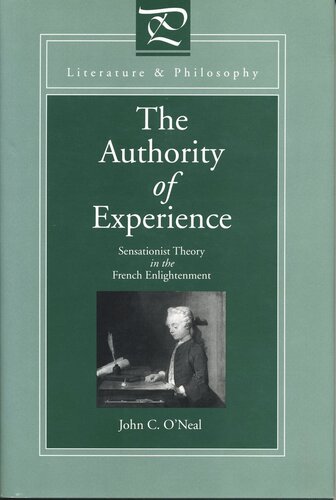

Most ebook files are in PDF format, so you can easily read them using various software such as Foxit Reader or directly on the Google Chrome browser.
Some ebook files are released by publishers in other formats such as .awz, .mobi, .epub, .fb2, etc. You may need to install specific software to read these formats on mobile/PC, such as Calibre.
Please read the tutorial at this link: https://ebookbell.com/faq
We offer FREE conversion to the popular formats you request; however, this may take some time. Therefore, right after payment, please email us, and we will try to provide the service as quickly as possible.
For some exceptional file formats or broken links (if any), please refrain from opening any disputes. Instead, email us first, and we will try to assist within a maximum of 6 hours.
EbookBell Team

4.4
12 reviewsSensationism, a philosophy that gained momentum in the French Enlightenment as a response to Lockean empiricism, was acclaimed by Hippolyte Taine as "the doctrine of the most lucid, methodical, and French minds to have honored France." The first major general study in English of eighteenth-century French sensationism, The Authority of Experience presents the history of a complex set of ideas and explores their important ramifications for literature, education, and moral theory.
The study begins by presenting the main ideas of sensationist philosophers Condillac, Bonnet, and Helvétius, who held that all of our ideas come to us through the senses. The experience of the body in seeing, hearing, smelling, tasting, and touching enabled individuals, as John C. O'Neal points out, to challenge the sometimes arbitrary authority of institutions and people in positions of power. After a general introduction to sensationism, the author develops a theory of sensationist aesthetics that not only reveals the interconnections of the period's philosophy and literature but also enhances our awareness of the forces at work in the French novel. He goes on to examine the relations between sensationism and eighteenth-century French educational theory, materialism, and idéologie. Ultimately, O'Neal opens a discussion of the implications of sensationist thought for issues of particular concern to society today.